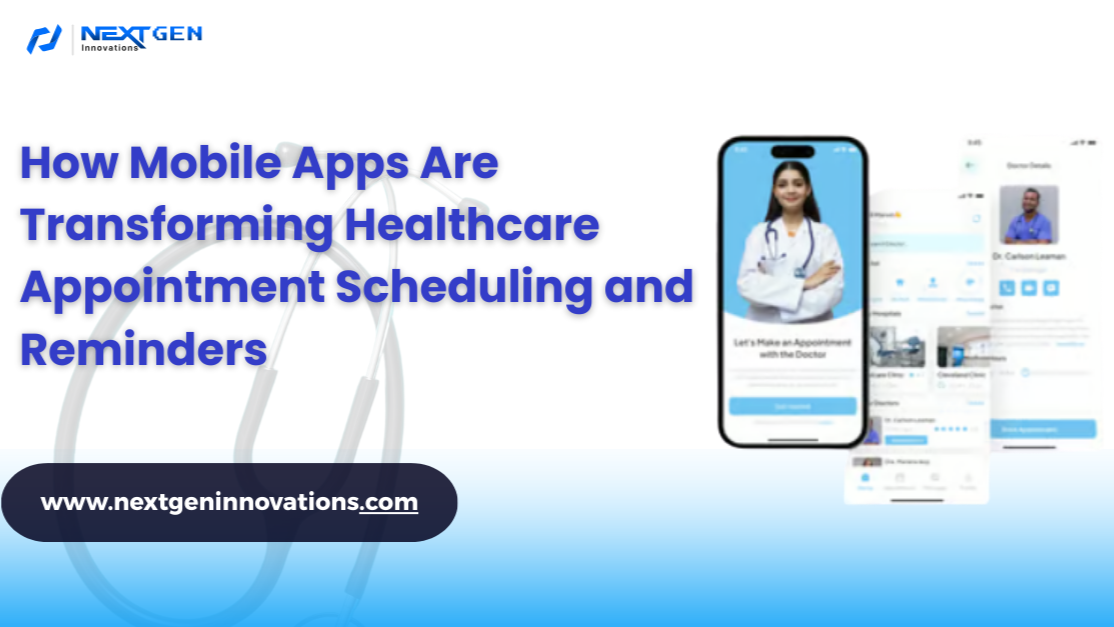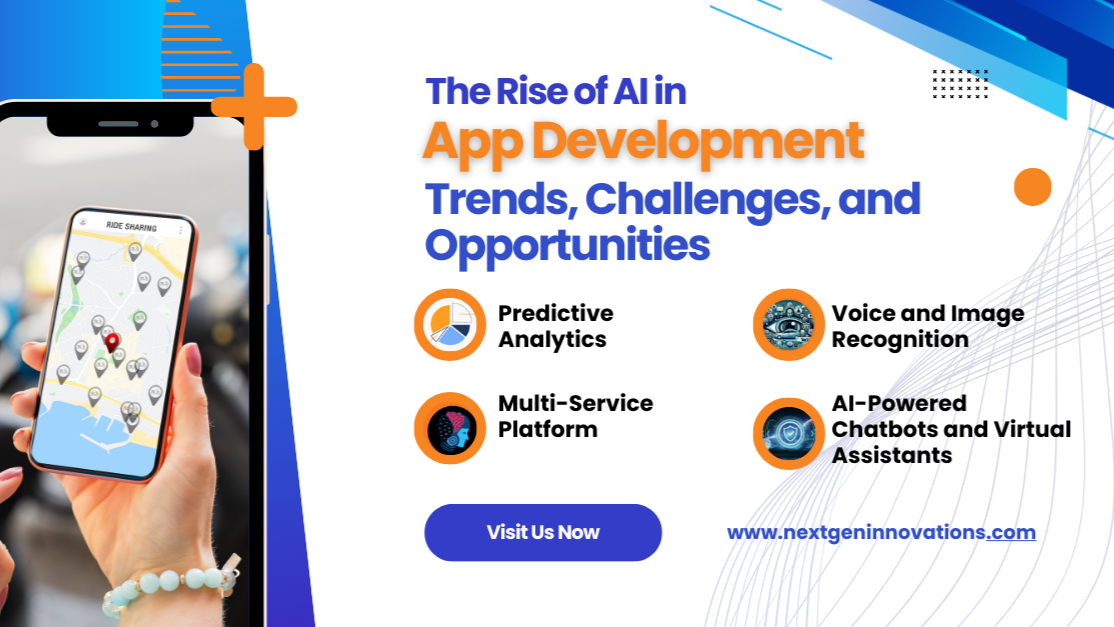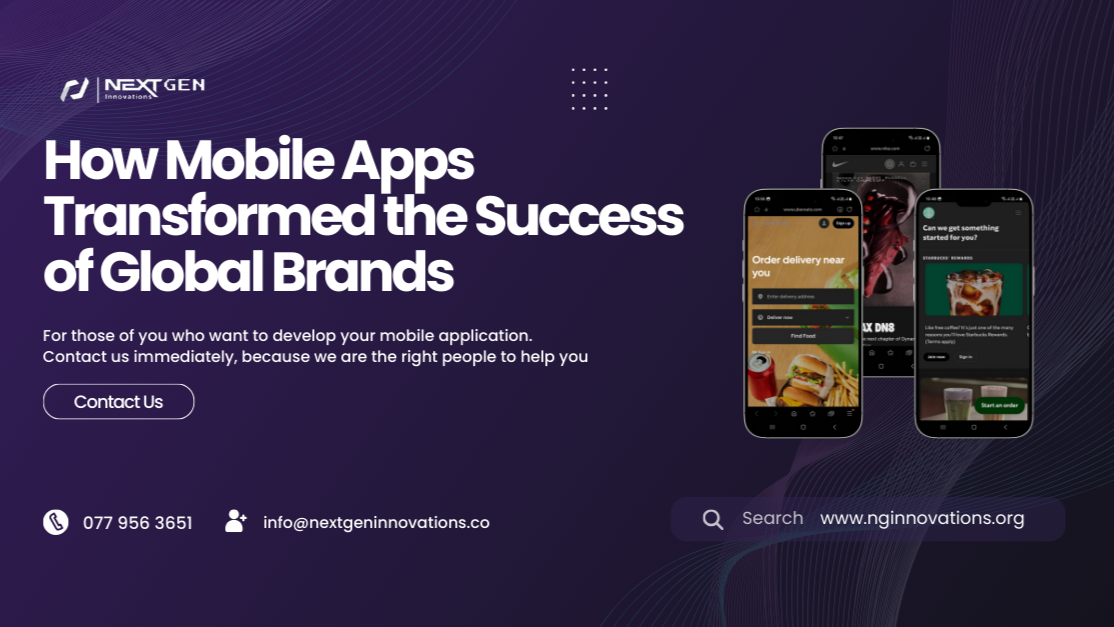HealthTech & Mobile Solutions
How Mobile Apps Improve Healthcare Scheduling
2 min Read

In the fast-paced healthcare environment, managing appointments and ensuring patients don’t forget their scheduled visits can be a complex challenge. However, with the rise of mobile apps, these challenges are being addressed in an efficient and user-friendly manner. In this blog post, we’ll explore the issues faced by the healthcare industry related to appointment scheduling and reminders, and how mobile apps provide a seamless solution.
The Problem: Inefficient Appointment Scheduling and Missed Reminders
One of the most common pain points in healthcare management is appointment scheduling. Traditional systems often lead to scheduling errors, overbookings, and missed opportunities for both patients and healthcare providers. Additionally, missed appointments are a major concern that impacts a healthcare provider’s revenue, efficiency, and patient care quality.
Patients often forget their appointments, or worse, don’t even confirm their visit, resulting in unused time slots that could have been offered to others. Healthcare providers also struggle with the manual process of calling or sending reminder emails, leading to high administrative costs and inefficiency.
How Mobile Apps Solve These Problems
Mobile apps have become a game-changer in healthcare management, offering a range of solutions to optimize appointment scheduling and reminder systems. Here’s how:
- 24/7 Appointment Booking and Scheduling
Mobile apps enable patients to schedule, reschedule, or cancel appointments at their convenience any time of day or night. This accessibility not only empowers patients to take control of their healthcare but also streamlines the scheduling process for medical professionals.
With a mobile app for appointment scheduling, providers can ensure they are never double-booked and can efficiently manage their calendar, all while reducing human error.
- Automated Reminders and Notifications
Mobile apps can send automated reminders through push notifications, SMS, or emails. Patients are sent reminders in advance, reducing the likelihood of missed appointments. These reminders can be set at multiple intervals, such as a day before, an hour before, and even the morning of the appointment ensuring the patient has ample notice.
This reminder system not only benefits the patients but also boosts the healthcare provider’s efficiency by reducing the number of no-shows, ensuring that time slots are filled and revenue is maximized.
- Improved Communication with Patients
Mobile apps allow healthcare providers to communicate effectively with their patients. Whether it’s confirming an appointment, sending follow-up messages, or providing important information before a visit, in-app messaging creates a direct line of communication that reduces misunderstandings and missed appointments
- Patient Data and Personalization
A mobile app for healthcare also allows the system to store patient data and preferences, making appointment scheduling easier. For example, a patient can be automatically reminded of the type of consultation they need based on their medical history, or even their previous appointments. Personalization increases the likelihood of the patient keeping their scheduled appointment.
- Integration with Other Systems
Mobile apps can be integrated with electronic health records (EHR) and other management systems, ensuring seamless communication between different departments in a healthcare organization. This integration can help manage follow-up appointments, prescriptions, and other related tasks, making the entire healthcare process smoother and more efficient.
Benefits of Mobile Appointment Apps in Healthcare
Mobile apps offer several key benefits for both healthcare providers and patients:
- Convenience: Patients can book appointments anytime, anywhere, reducing the burden on phone lines and front-desk staff.
- Efficiency: Healthcare providers save time spent on administrative tasks like appointment booking, confirmation, and reminders.
- Reduction in No-Shows: Automated reminders lead to fewer missed appointments and better utilization of time slots.
- Improved Patient Satisfaction: Mobile apps provide a more convenient and personalized experience for patients, leading to higher levels of satisfaction and loyalty.
- Better Revenue Management: By ensuring fewer missed appointments and optimizing scheduling, healthcare providers can improve their revenue streams.
The Future of Appointment Scheduling in Healthcare
As the healthcare industry continues to embrace digital solutions, mobile apps will play an even larger role in streamlining operations and enhancing patient experiences. From telemedicine appointments to virtual consultations, mobile apps are set to redefine how healthcare services are delivered.
For healthcare providers looking to improve their appointment scheduling process and reduce no-shows, adopting a mobile app solution is a step toward better patient management, improved operational efficiency, and increased profitability.
More Insights

Mobile App Development
Agile Methodology for Mobile App Development
Agile’s flexibility and speed make it ideal for mobile apps—enabling faster releases, real-time feedback, and continuous improvement.

AI & Mobile Development
The Rise of AI in App Development
Discover how AI is transforming mobile app development with chatbots, personalization, predictive analytics, and enhanced security.

Digital Innovation & Mobile Trends
How Mobile Apps Transformed the Success of Global Brands
Discover how Nike, Starbucks, and Uber use mobile apps to boost sales, improve customer experience, and build loyalty.
